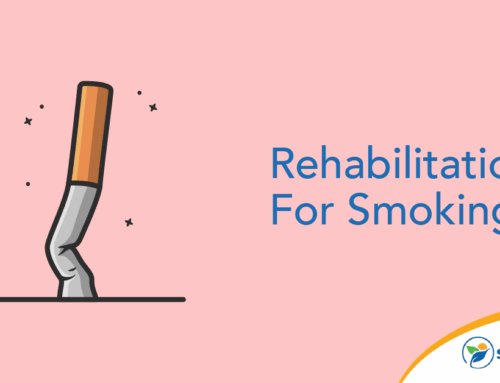Feeling nervous and a bit apprehensive about going to rehab is only natural. Regardless of your reason for entering treatment, being prepared is the best way to make the most of this experience. Understanding what lies ahead can reduce stress and enable you to walk through those doors, ready to make positive changes.
What to Expect in Rehab
You may have a lot of mixed thoughts and emotions about your upcoming rehab stay, but you’re not alone. According to the National Survey on Drug Use and Health, in 2023 alone, 3.5 million Americans entered inpatient treatment for mental health struggles or substance use disorders.
Rehab programs follow a structured routine. A predictable daily schedule helps build stability, encourages discipline and supports healthy new habits.
The specifics for each facility vary, but most include relatively early starts with set meal and medication times. The resident attends morning meetings and individual counseling sessions. Afternoons tend to involve therapy sessions or workshops. Group therapy sessions allow participants to connect with others facing similar struggles. Sessions may include practical topics, such as coping skills, relapse prevention and managing stress or triggers.
Programs often include educational sessions on mental health or addiction. Wellness activities, such as art therapy, may be included as outlets for stress relief. Evenings usually provide time for reflection, relaxation or additional group activities.
During your stay, you’ll participate in various evidence-based and holistic therapies, such as:
- Individual therapy. During counseling sessions, you’ll identify personal struggles and develop coping strategies.
- Peer support. Most rehab centers in the United States offer access to 12-step recovery programs.
- Family counseling. Many programs incorporate family therapy so participants can work on rebuilding relationships with loved ones who were affected by the addiction.
- Holistic treatments. Rehab centers may provide additional therapies, such as music or equine therapy.
Preparations Before Going to Rehab
Preparing certain practicalities before admission can make your stay less stressful.
If you haven’t already done so, discuss your upcoming inpatient stay with someone you trust. Prepare all your essential documents, including identification, insurance information and emergency contacts. Get a general physical exam, and discuss any concerns or medications with your doctor.
Financial and Professional Arrangements
Talk with your employer or human resources department about your upcoming leave. Try to provide a general timeline for your return. The Family and Medical Leave Act may offer job protection for up to 12 weeks. However, specifics, such as sick pay, can vary, and you may be required to give your employer 30 days’ notice.
You may find leaving your work affairs in order helpful. Try temporarily redistributing essential tasks or projects you’ve been involved with, and leave detailed notes about your responsibilities.
Taking care of financial obligations beforehand helps you fully concentrate on your recovery. Set up automatic payments for bills, or ask someone trustworthy to handle finances while you’re away. Also, contact your insurance provider to confirm your benefits and clarify payment responsibilities.
If you have pending legal issues, inform your attorney about your plans to enter rehab. They can help you manage court dates or legal obligations to avoid complications during your treatment stay.
Handling Family Responsibilities
As you’ll be away from your usual home life for an extended period, thinking about how to organize responsibilities beforehand can alleviate anxiety. Ask trusted family members or friends to help manage household chores or childcare duties.
If you have young children, discuss your rehab plans with trusted family members or close friends who can provide childcare. If your children are school-age, notify their school or day care about the temporary arrangements, and share emergency contacts for your stay. Create a detailed schedule outlining your children’s daily routines, meal plans, written instructions, contact lists and medical authorization forms so caregivers have everything needed in emergencies.
If you’re responsible for caring for elderly parents, arrange temporary care services, such as home care aides. Notify their regular doctors or health care providers about your absence, and provide updated contact information for caregivers.
Consider asking trusted friends, neighbors or family members to check on your home periodically and handle tasks such as mail collection. If you have pets, you may want to ask a reliable friend for help or hire a pet sitter.
What to Bring to Rehab
Rehab centers have guidelines for allowed items, so double-check your rehab checklist with the facility beforehand. Items to put in your suitcase include:
- Clothing. Pack comfortable, casual clothing and appropriate footwear suitable for a few weeks.
- Toiletries. You’ll likely need to bring products without alcohol content, as alcohol-based products may be prohibited.
- Medication. Pack all your prescribed medications, but ensure they’re in their original packaging.
- Personal items. Feel free to bring photos of loved ones, books or a personal journal to help you relax during downtime.
Avoid taking expensive valuables or large sums of money to the facility, as they could be stolen. And don’t take any prohibited items, such as drugs or alcohol, into the facility.
Mentally Preparing for the Recovery Journey
Entering rehab is a crucial step in your recovery journey and means committing to living a life free from harmful habits and behaviors. Change is never easy, but emotional preparedness can be as valuable as an essential rehab packing list.
Start by establishing realistic recovery goals. Write them down to discuss with your care team at the facility. Clear goals help provide direction and motivation when faced with challenges during rehab. Try to keep an open mind about the process, and prepare for emotional ups and downs, as expecting fluctuations can help you handle them constructively.
Committing wholeheartedly to positive changes may be one of the most important things to do before starting residential treatment. Embrace the idea that rehab will involve new habits and routines.
Seeking a Trusted Rehab Facility?
Finding the right rehab sets the stage for a successful recovery experience. Sunlight Recovery provides inpatient and outpatient programs in a supportive, healing environment. Don’t hesitate to reach out. Our team is available 24-7, ready to help you reclaim your life.







